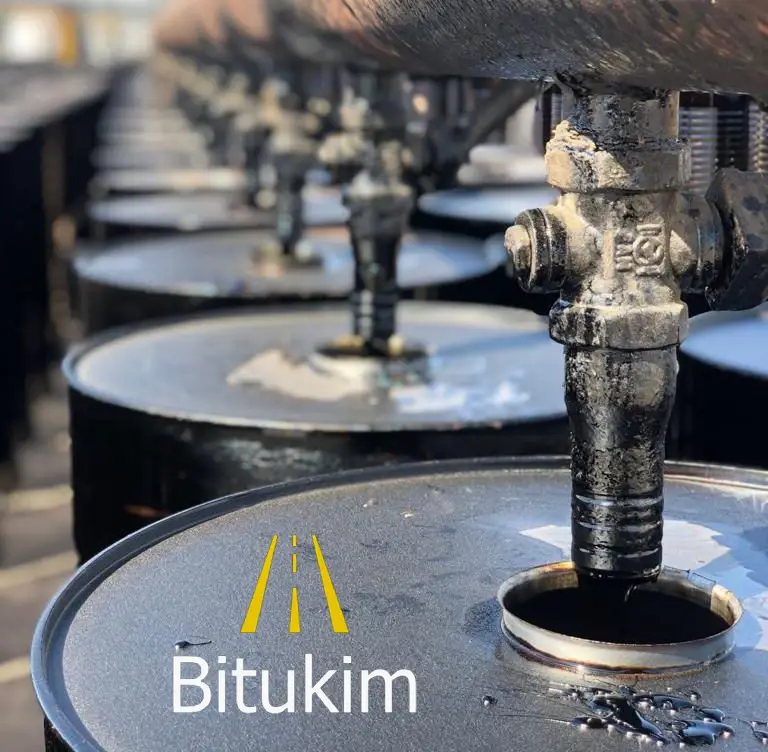
What is VG Bitumen 20?
VG Bitumen 20 (Viscosity Grade 20) is petroleum bitumen used in the application of moderate climates, particularly where the mean ambient temperatures are between 30°C and 37°C. VG Bitumen 20 is generally used in road construction, pavement, and infrastructure construction at high altitudes and cold weather where slightly higher viscosity than that of VG 10 is needed.
This bitumen has an absolute viscosity of 1600 to 2400 poise at 60°C and a standard penetration value of about 60 mm at 25°C, and it ensures a guarantee of a good hardness and flexibility balance. VG 20 has widespread usage in North India for hot mix asphalt applications.
Uses of VG Bitumen 20
1. Road Construction
VG 20 bitumen finds extensive use in residential road construction, village roads, and parking areas where climatic conditions necessitate moderate stiffness bitumen.
2. Asphalt Pavements
It is used in paving mixes, patching products, and resurfacing to provide road performance throughout their life cycle.
3. Roofing Materials
VG 20 bitumen is a critical ingredient of roofing shingles, roll roofing, and built-up roofs, shielding them from weather and moisture.
4. Waterproofing
It is used to seal cracks, joints, and surfaces to achieve a sound barrier to prevent water penetration in buildings and structures.
5. Pipe Coating
VG 20 is also applied in uses that include pipe coating to offer corrosion protection and insulation for underground or on-ground pipelines.
Advantages of VG Bitumen 20
VG Bitumen 20 offers a balanced hardness and viscosity ratio, hence ideally suitable for road making in temperate climatic regions and areas of moderate traffic. Its improved load-carrying capacity offers strength and long life under traffic stress and climatic conditions. This bitumen grade also offers excellent aggregate adhesion, good cohesion, and maintains stability across various temperatures. It’s cost-effective, readily available, and works well with a variety of materials, thus making it multi-purpose for airport runways, highways, and urban roads. It’s also high in flash point to ensure additional protection in storage and transportation.
Packing and Transporting VG Bitumen 20
VG 20 bitumen comes in various packing variants depending on the size of the project and transport requirements:
New Steel Drums – 180 Kg
Bitubags – 375 Kg
Bulk in Vessel
Bulk in Flexi Bags
Bulk in Tankers
Secure packaging, convenient handling, and economical transport to project locations are ensured.
Why Choose Us?
-
High-Quality VG Bitumen: We provide top-of-the-line VG Bitumen, adhering to global standards like ASTM and AASHTO, ensuring maximum performance and uniformity.
-
Expert Technical Support: Our experienced team offers guidance to help clients select the appropriate bitumen grade for their specific project requirements.
-
Competitive Pricing and Reliable Supply Chain: We offer cost-effective pricing and ensure timely delivery through various modes, including steel drums, bitubags, flexi bags, and bulk transport.
-
Responsive Customer Service: Our professional customer service team delivers a seamless experience from initial inquiry to final delivery.
-
Customized Solutions: We provide tailored bitumen mixes designed to meet the unique needs of each project.
Conclusion
VG Bitumen 20 is a versatile, cost-effective, and reliable bitumen grade suitable for a wide range of infrastructure projects in moderate climates. Its balance of viscosity, durability, and workability makes it a preferred choice for engineers, contractors, and government agencies in road and civil construction.
Specification of VG Bitumen 20
| Property | Units | Specification | Test Method |
|---|---|---|---|
| Penetration at 25°C, 100g, 5sec, Min | 0.1 MM | 60 | IS 1203 |
| Absolute viscosity at 60°C | p | 1600-2400 | IS 1206 (Part 2) |
| Kinematic viscosity at 135°C, Min | cSt | 300 | IS 1206 (Part 3) |
| Flash point(Cleveland open cup),Min | °C | 220 | IS 1448 [P : 69] |
| Solubility in trichloroethylene, Min | %Wt. | 99 | IS 1216 |
| Softening point (R&B), Min | °C | 45 | IS 1205 |
| Tests on residue from thin-film oven test: | |||
| Viscosity ratio at 60°C, Max | P | 4.0 | IS 1206 (Part 2) |
| Ductility at 25°C, Min | CM | 50 | IS 1208 |

